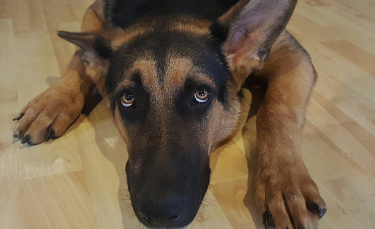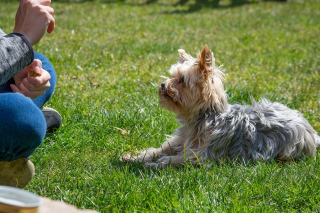 Illustrative photo
Illustrative photo
Since the start of the Covid-19 pandemic, specialists in the canine world have been worried about the fallout from the spectacular upsurge in adoptions. More and more educators are pointing the finger at the behavioral problems observed in these dogs, as well as the difficulty they experience in dealing with the very high demand for their services.
It is the American dog trainers who are raising the alarm, but the observation they make may be valid in many other countries, including France. According to these professionals, the number of owners no longer able to manage the dogs they had adopted or bought during the health crisis has exploded, reported Vice on Wednesday, July 14.
To help them live better in isolation, nearly 13 million households had adopted pets between March and December 2020 in the United States, according to the American Pet Products Association . Puppies of this generation grew up and many of them today suffer from serious behavioral problems.
Mark Patrick , founder of Tuxedo’s K9 Training Camp in Rochester, New York and Chairman of the Board of the Association of Professional Dog Trainers , is in a perfect position to see this disturbing trend. He has never dealt with so many cases of destructive, disobedient and anxious dogs as he has in recent months.

Up to 3 months of waiting to entrust your dog to an educator
Lack of stimulation and social interactions
Bridget Murphy deals with dogs which, because of the confinement and the lack of knowledge of their masters, have significant gaps in terms of stimulation and social interactions in particular. Animals that overreact to trivial situations: the wind, a person wearing a hat, a tall man …

Unheard of in 30 years of career
Another reason for fear among dog trainers: separation anxiety associated with this worrying phenomenon and manifested when the restrictive measures were lifted, with the return of the masters to work. The incomprehension of the owners vis-a-vis this behavioral disorder with the dramatic consequences is put on the index. “ People think separation anxiety happens because they want you to come home, but that’s not true, ” says Fanna Easter , owner of Positive Pooch Behavior and Training in Dallas , TX. In reality, it is due to the fact that dogs “ don’t know what to do when they are left alone at home. They need to understand that everything will be fine for them even when you are not there, ”she continues.
Read also: Terrified of humans because of the mistreatment he suffered, this Malinois is learning to trust again
For the Texan educator, the demand for her services has tripled compared to what was required before the Covid-19 pandemic. She claims to have never seen this in her 30-year career.
 </p
</p








